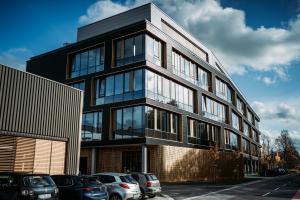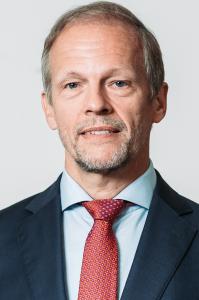
Quality management at DSMZ recertified according to ISO 9001:2015
BRAUNSCHWEIG, LOWER SAXONY AREA, DEUTSCHLAND, August 29, 2024 /EINPresswire.com/ -- The Leibniz Institute DSMZ-German Collection of Microorganisms and Cell Cultures GmbH in Braunschweig, Germany, has met the increased requirements of quality management and passed the recertification according to ISO 9001:2015 for the seventh time in a row. The certification has thus been in place for 20 years and is now valid until 2027. The certification followed a thorough examination of all relevant business processes and quality management systems by independent auditors from DQS Medizinprodukte in Frankfurt am Main, Germany. The continued certification demonstrates the consistent implementation of quality standards and the continuous improvement of the Leibniz Institute DSMZ.
What does ISO 9001:2015 stand for?
ISO 9001:2015 is an internationally recognized standard for quality management systems that defines strict requirements on the organization itself and execution of its processes. Implementation of the standard ensures the consistently high quality of products and services. It is characterised by clear objectives, measurable results, appropriate resources, structured processes and their continuous improvement for the benefit of both customers and DSMZ employees. The certification is audited annually and recertified every three years.
What the DSMZ is certified for
The DSMZ is certified as a Biological Resource Centre for the collection, preservation and distribution of biological material (bioresources) and associated primary data in the areas of microorganisms, protists and cyanobacteria, plant viruses, plant cell cultures, human and animal cell cultures and DNA. The certification also applies to the status of the Leibniz Institute DSMZ as an international depository of biological resources for patent purposes and as a service provider for the identification, authentication and diagnosis of biological material.
Press contact:
PhDr. Sven-David Müller, Head of Public Relations, Leibniz Institute DSMZ-German Collection of Microorganisms and Cell Cultures GmbH
Phone: ++49 (0)531/2616-300
Mail: press@dsmz.de
About the Leibniz Institute DSMZ
The Leibniz Institute DSMZ-German Collection of Microorganisms and Cell Cultures is the world's most diverse collection of biological resources (bacteria, archaea, protists, yeasts, fungi, bacteriophages, plant viruses, genomic bacterial DNA as well as human and animal cell lines). Microorganisms and cell cultures are collected, investigated and archived at the DSMZ. As an institution of the Leibniz Association, the DSMZ with its extensive scientific services and biological resources has been a global partner for research, science and industry since 1969. The DSMZ was the first registered collection in Europe (Regulation (EU) No. 511/2014) and is certified according to the quality standard ISO 9001:2015. As a patent depository, it offers the only possibility in Germany to deposit biological material in accordance with the requirements of the Budapest Treaty. In addition to scientific services, research is the second pillar of the DSMZ. The institute, located on the Science Campus Braunschweig-Süd, accommodates more than 88,000 bioresources and has almost 230 employees. www.dsmz.de
The Leibniz Association
The Leibniz Association connects 96 independent research institutions that range in focus from the natural, engineering and environmental sciences via economics, spatial and social sciences to the humanities. Leibniz Institutes address issues of social, economic and ecological relevance. They conduct basic and applied research, including in the interdisciplinary Leibniz Research Alliances, maintain scientific infrastructure, and provide research-based services. The Leibniz Association identifies focus areas for knowledge transfer, particularly with the Leibniz research museums. It advises and informs policymakers, science, industry and the general public. Leibniz institutions collaborate intensively with universities – including in the form of Leibniz ScienceCampi – as well as with industry and other partners at home and abroad. They are subject to a transparent, independent evaluation procedure. Because of their importance for the country as a whole, the Leibniz Association Institutes are funded jointly by Germany’s central and regional governments. The Leibniz Institutes employ around 20,500 people, including 11,500 researchers. The financial volume amounts to 2 billion euros. www.leibniz-gemeinschaft.de
PhDr. Sven David Mueller, M.Sc.
Leibniz-Institut DSMZ
+49 5312616300
email us here
Visit us on social media:
Facebook
X
LinkedIn
Instagram
YouTube
Other
Distribution channels: Environment, Healthcare & Pharmaceuticals Industry, Science, World & Regional
Legal Disclaimer:
EIN Presswire provides this news content "as is" without warranty of any kind. We do not accept any responsibility or liability for the accuracy, content, images, videos, licenses, completeness, legality, or reliability of the information contained in this article. If you have any complaints or copyright issues related to this article, kindly contact the author above.
Submit your press release


